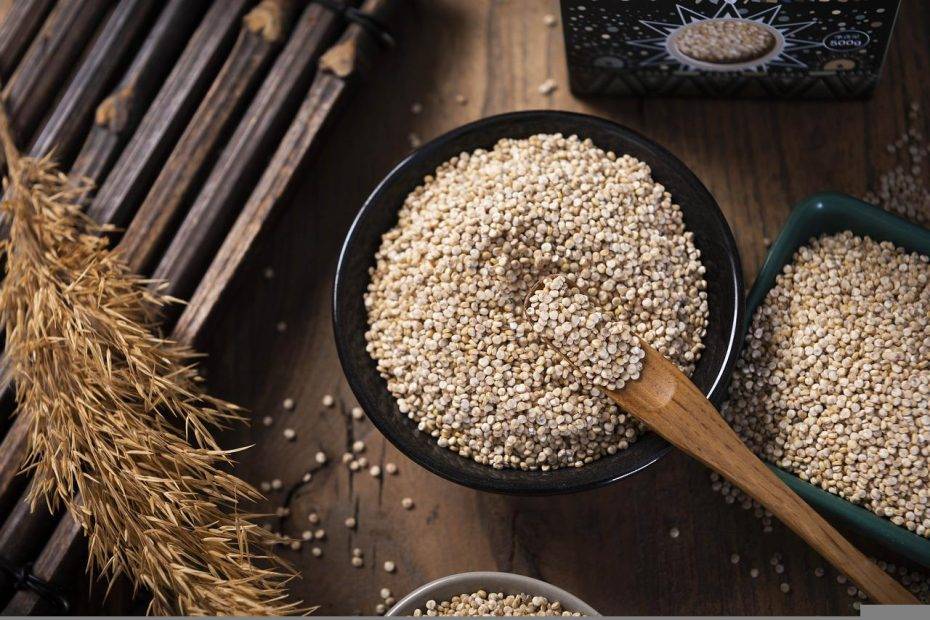10 complete protein plant sources for vegetarians and vegans
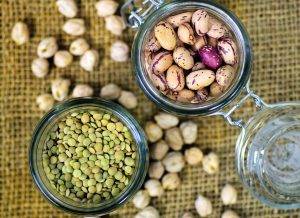 There are many ways to get enough protein on a vegan/vegetarian diet. Though not all plant-based proteins are complete proteins, means they’re devoid of all 9 essential amino acids. Amino acids are building blocks of protein. Though our body can make some of them, about nine of them need to be obtained through diet. They include
There are many ways to get enough protein on a vegan/vegetarian diet. Though not all plant-based proteins are complete proteins, means they’re devoid of all 9 essential amino acids. Amino acids are building blocks of protein. Though our body can make some of them, about nine of them need to be obtained through diet. They include
- Histidine
- Leucine
- Isoleucine
- Lysine
- Methionine
- Phenylalanine
- Threonine
- Tryptophan
- Valine
Although, animal products like beef, fish, dairy, and egg contain enough of all essential amino acids. Fortunately, several plant-based sources and combos contain a sufficient amount of them.
Here are 10 nearly complete plant-based protein sources and combos.
Quinoa
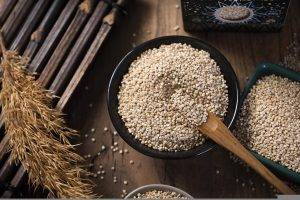 It’s an ancient pseudo-cereal grain that has a crunchy texture and nutty flavor. It is gluten-free. Around 1 cup of cooked quinoa provides approximately 8 grams of protein.
It’s an ancient pseudo-cereal grain that has a crunchy texture and nutty flavor. It is gluten-free. Around 1 cup of cooked quinoa provides approximately 8 grams of protein.
Quinoa is also more rich in magnesium, iron, fiber, and zinc than many other common grains. They can be cooked similarly to rice or simmered in milk for making porridges. The best quinoa you can find online, where you can select from a wide range of varieties.
Amaranth
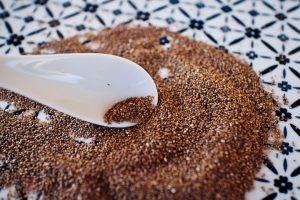 Amaranth is another gluten-free pseudo-cereal, which is a complete source of protein. 1 cup of cooked amaranth provides about 9 gm of protein. It is also an excellent source of manganese and iron.
Amaranth is another gluten-free pseudo-cereal, which is a complete source of protein. 1 cup of cooked amaranth provides about 9 gm of protein. It is also an excellent source of manganese and iron.
It can be boiled for making porridges or ground into flour for making fulkas /chapatti or baking purposes.
Tofu and Tempeh
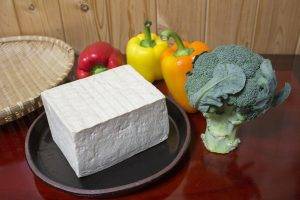 Tofu, Tempeh is an excellent plant-based protein source and is made from soybeans. Tofu is prepared from coagulated soy milk whereas Tempeh is made from fermented soybeans. Tofu is quite bland in taste while tempeh is much chewier and nuttier. Around 85 gm tofu serves approximately 8 gm whereas tempeh provides 11 gm protein respectively.
Tofu, Tempeh is an excellent plant-based protein source and is made from soybeans. Tofu is prepared from coagulated soy milk whereas Tempeh is made from fermented soybeans. Tofu is quite bland in taste while tempeh is much chewier and nuttier. Around 85 gm tofu serves approximately 8 gm whereas tempeh provides 11 gm protein respectively.
Edamame
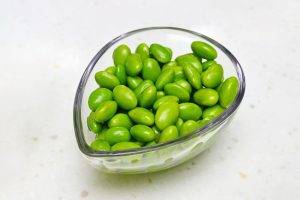 Edamame beans are whole, immature soybeans, which are green-colored, slightly sweet, grassy flavor. Around ½ cup of whole edamame provides 8 grams of protein. They’re also rich in good amounts of fiber, calcium, vitamin C, and iron. They’re usually steamed/ boiled and can be enjoyed as a snack or added to soups, or grain bowls.
Edamame beans are whole, immature soybeans, which are green-colored, slightly sweet, grassy flavor. Around ½ cup of whole edamame provides 8 grams of protein. They’re also rich in good amounts of fiber, calcium, vitamin C, and iron. They’re usually steamed/ boiled and can be enjoyed as a snack or added to soups, or grain bowls.
Buckwheat
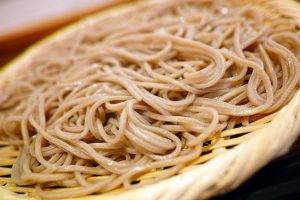 Though not so high in protein content as quinoa/amaranth, buckwheat is another pseudocereal that is a complete protein. It is also a good source of phosphorus, copper, magnesium, manganese, and iron.
Though not so high in protein content as quinoa/amaranth, buckwheat is another pseudocereal that is a complete protein. It is also a good source of phosphorus, copper, magnesium, manganese, and iron.
1 cup of cooked buckwheat provides approximately 6 grams of protein. It can be cooked similarly to oatmeal or ground into flour and used in baking.
Chickpea hummus and wheat bread
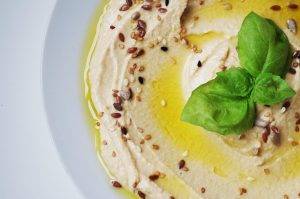 Hummus is a delicious Middle Eastern classic and wheat bread in combination provides all nine essential amino acids. Similarly to rice, wheat is too low in lysine to be considered a complete protein. However, chickpeas, the main ingredient in hummus are rich in lysine.
Hummus is a delicious Middle Eastern classic and wheat bread in combination provides all nine essential amino acids. Similarly to rice, wheat is too low in lysine to be considered a complete protein. However, chickpeas, the main ingredient in hummus are rich in lysine.
2 tablespoons Chickpea hummus of hummus along with 1 whole wheat roti provide approximately 7 grams of protein.
Peanut butter sandwich
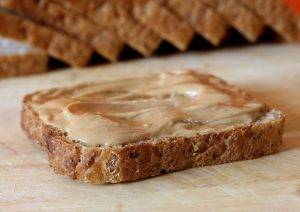 Every time legumes like beans, lentils, and peanuts are combined with a grain like wheat, rice, and millet, a complete protein is born. Around 2 tablespoons of peanut butter on 2 slices of whole wheat, provides a heaping dose of all essential amino acids.
Every time legumes like beans, lentils, and peanuts are combined with a grain like wheat, rice, and millet, a complete protein is born. Around 2 tablespoons of peanut butter on 2 slices of whole wheat, provides a heaping dose of all essential amino acids.
Rice and beans
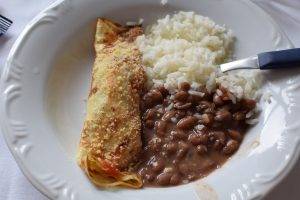 Around 1 cup serves about 8-gram protein. It is one of the simplest vegetarian options. Most beans are low in methionine and high in lysine, while rice is poor in lysine. But when consumed together, it is a wholesome meal
Around 1 cup serves about 8-gram protein. It is one of the simplest vegetarian options. Most beans are low in methionine and high in lysine, while rice is poor in lysine. But when consumed together, it is a wholesome meal
Ezekiel bread
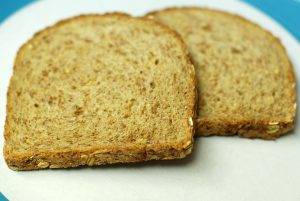 It is usually made from sprouted grains, a process of fermentation that significantly increases the bread’s fiber, and vitamin contents. Around 2 slices serve about 8 grams of protein.
It is usually made from sprouted grains, a process of fermentation that significantly increases the bread’s fiber, and vitamin contents. Around 2 slices serve about 8 grams of protein.
Others
Other protein sources which are not so rich in all the nine essential amino acids but can be still considered are hemp seeds, chia seeds, nutritional yeast, and spirulina with seeds.
Spirulina
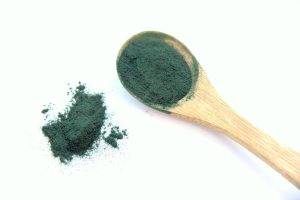 About 1 tablespoon of dried spirulina provides 4 grams of protein. In addition to being a source of complete protein, it is rich in antioxidants, copper, and B vitamins.
About 1 tablespoon of dried spirulina provides 4 grams of protein. In addition to being a source of complete protein, it is rich in antioxidants, copper, and B vitamins.
Hemp seeds
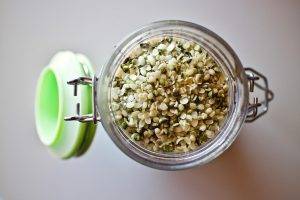 In addition to being a complete protein, hemp hearts are rich in essential fatty acids linoleic acid (omega-6) and alpha-linolenic acid(omega-3). 3 tablespoons boast 10-gram protein
In addition to being a complete protein, hemp hearts are rich in essential fatty acids linoleic acid (omega-6) and alpha-linolenic acid(omega-3). 3 tablespoons boast 10-gram protein
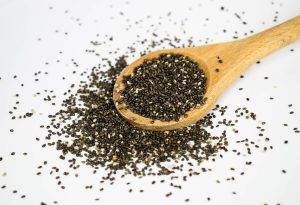 They’re unique gel-producing seeds that are rich in Omega-3s, iron, calcium, and magnesium. They can be used as a substitute for eggs. About 2 tablespoons provide 4 gm of protein.
They’re unique gel-producing seeds that are rich in Omega-3s, iron, calcium, and magnesium. They can be used as a substitute for eggs. About 2 tablespoons provide 4 gm of protein.
